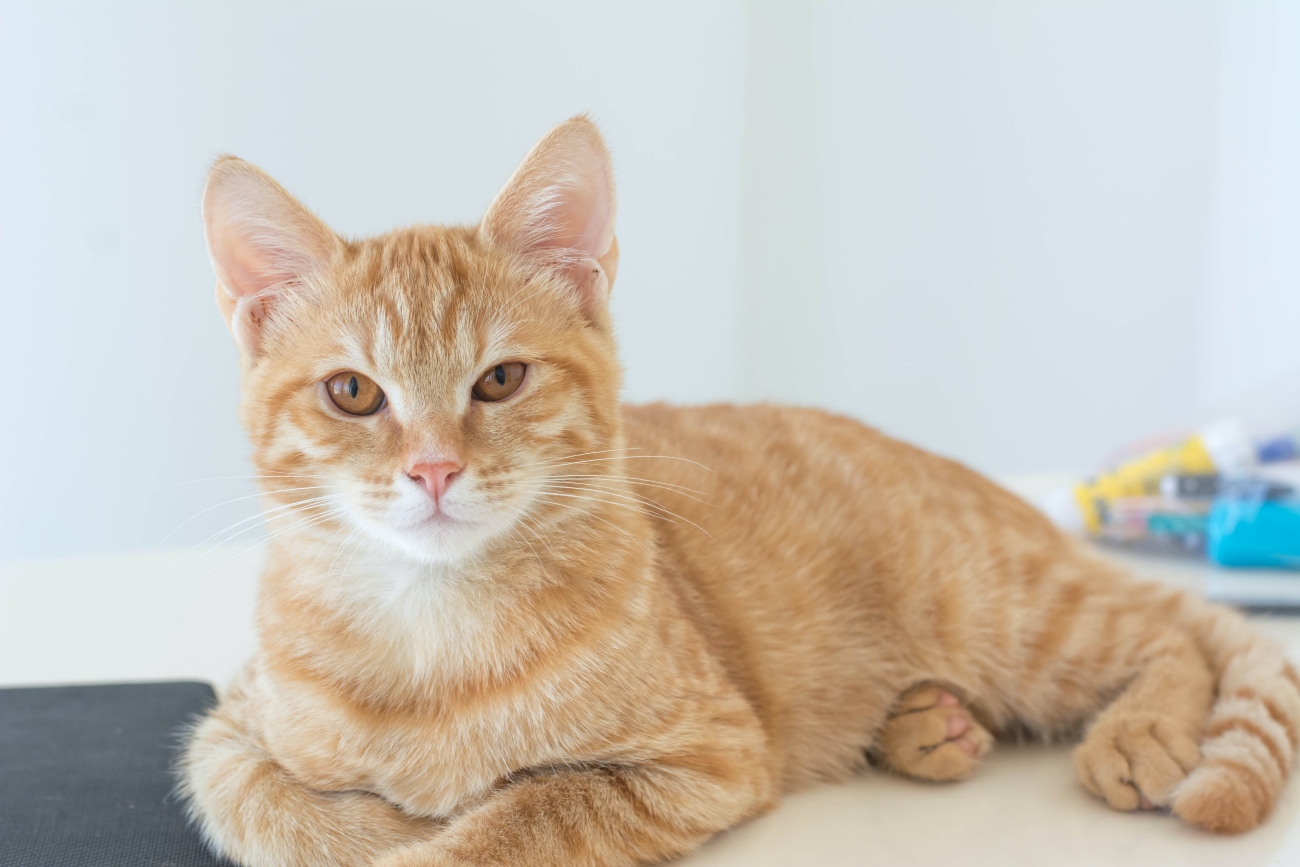
25 tips for living with an older cat
28th April, 2022
If you’re living with a marvellous older moggy, you’ll want to make their senior years as comfortable and enjoyable as possible.
Old age may bring more health issues for your beloved pet, but that doesn’t mean you can’t help them live life to the full.
As long as you have some pet insurance for older cats to take the strain of any vet bills, you’ll be able to dedicate your time and attention to making every day special.
Here are some other top tips for living with – and looking after – an older cat in their twilight years.
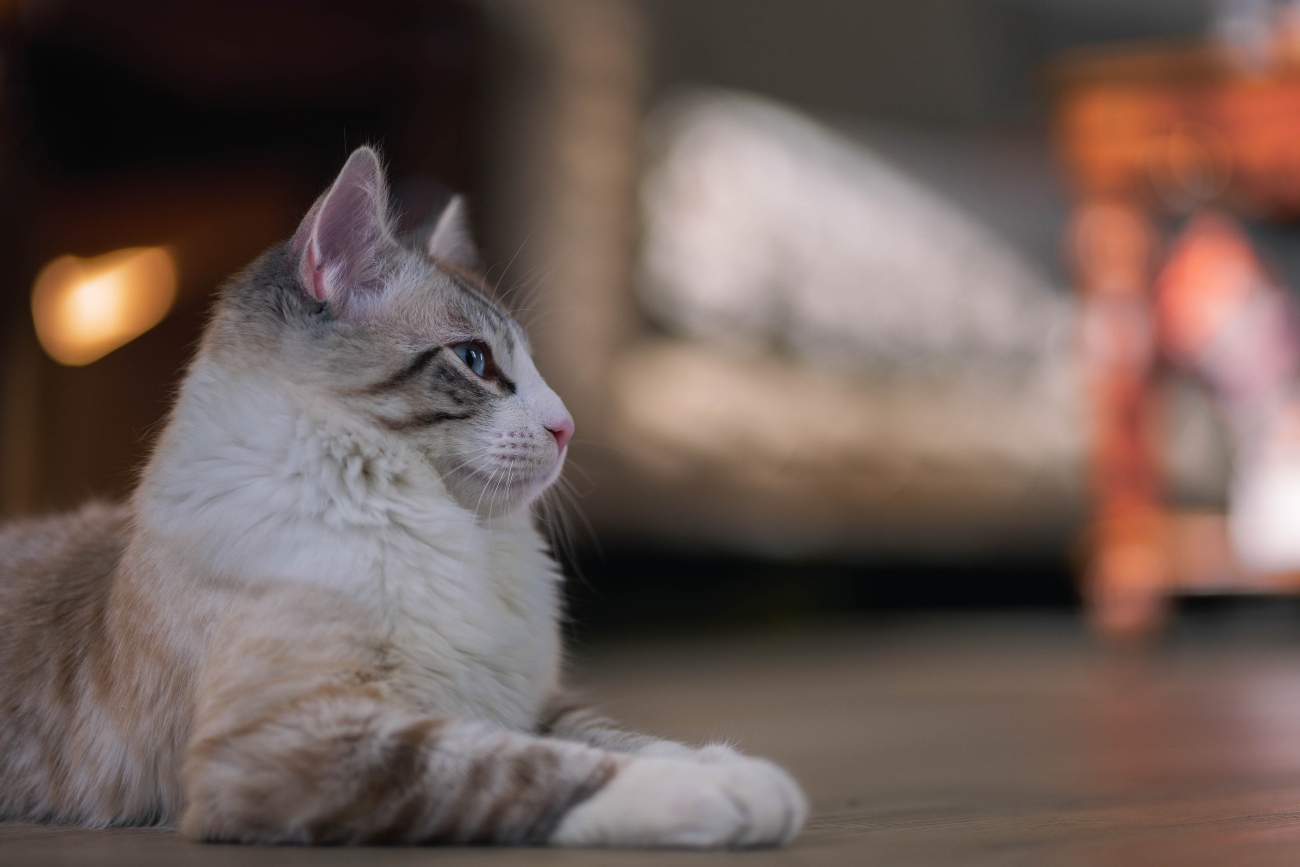
Contents
- Prepare for the changes
- Look for psychological shifts
- Know when your cat becomes ‘old’
- Keep up with vet appointments
- Invest in some specialist insurance for older cats
- Give your older cat age-appropriate food
- Make dinner time more fun
- Watch their water intake
- Give them easy access
- Lend a hand with grooming
- Adapt your home
- Check their bed
- Ramp it up
- Do they still like their litter?
- Cat-proof your garden
- Update that microchip
- Don’t miss play time
- Trim their claws
- Stick to the routine
- Do your research
- Weight loss worries
- Know the signs of pain
- Monitor their poop
- Don’t ignore their teeth
- Always consider quality of life
1. Prepare for the changes
As your cat ages, they will undergo some changes, to both their physical appearance and their behaviour. These are likely to include:
- Eating and drinking less - or more
- Being less active than before
- Losing their hearing or sight
- Urinating or pooping more
- Sleeping more in the day
- Changes to their fur
Some of these changes may come as a surprise: others you may not feel totally prepared for. Remember that your vet will be able to provide advice on how to change the way you care for your cat as they age.
Alternatively, if you take out pet insurance for older cats with us here at Petwise, one of the benefits includes access to our 24-Hour Vet Helpline.
2. Look for psychological shifts
An older cat may behave more aggressively. They may seem confused, or forget certain things like the whereabouts of their food bowl or litter tray. They may become increasingly dependent on you, not wanting to leave your side. Senior cats can also become more vocal than usual, voicing their anxieties and/or seeking reassurance that you are nearby. We’ve discussed some common signs of dementia in cats elsewhere on the blog.
If you’re living in a multi-cat household, your senior cat may become less tolerant of boisterous younger kittens. Make sure they have a place to retreat when things get too much.
3. Know when your cat becomes ‘old’
When exactly does a cat become a senior? Many cat owners may be unclear about when their pet is classified as elderly – and, of course, there is no exact answer that applies across all individuals and breeds.
What we can say, however, is that improvements in veterinary care mean that cats' lifespans are now longer than previously. Where once we would have considered a 12-year-old cat to be elderly, it's now not all that rare for cats to reach the age of 18.
It's helpful to be able to roughly age your cat in human years so you can get some idea of their likely energy and appetite levels at their time of life.
Cats develop quickly, with their ageing – relative to our human years – slowing somewhat later in life. So, for example, while a cat aged one year is roughly at the same life stage as a 15-year-old human, that rapid rate of development soon slows down to around four cat years per one human year.
Here is a helpful table for converting cat years to approximate human years. We also discussed cat life expectancy elsewhere on our blog.
4. Keep up with vet appointments
Just because your older cat has had all its vaccinations that doesn’t mean you can ignore regular vet check-ups. Monitoring now is more important than ever so you can detect the early signs of problems and treat them before they get worse.
5. Invest in some specialist pet insurance specifically for older cats
A good senior cat insurance policy can provide financial assistance with some of the costs you'll come up against as your cat ages. Your policy may be able to help with the costs of medicines, consultations and medical procedures. Our pet insurance for older cats here at Petwise also includes dental cover as standard.
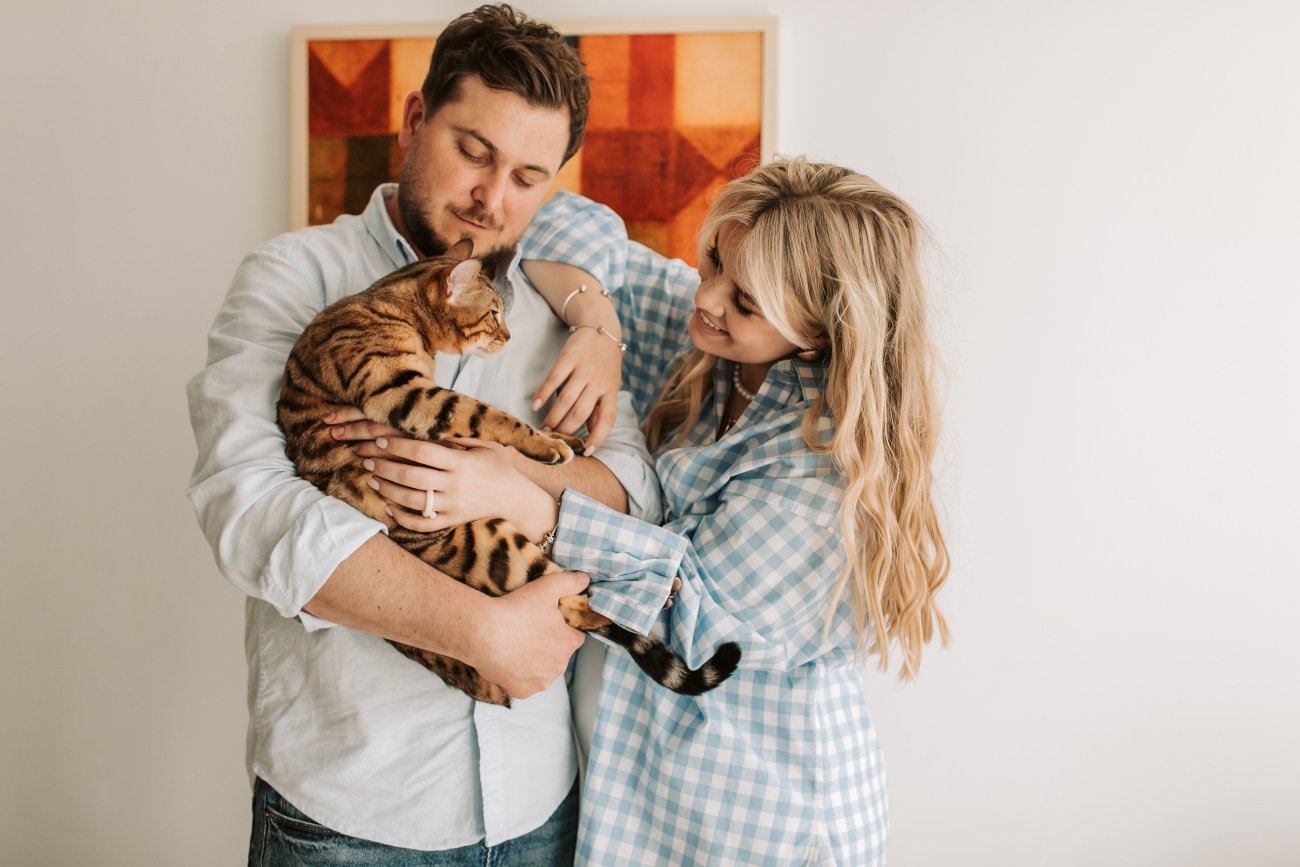
6. Give your older cat age-appropriate food
Most of the popular cat food brands produce a special senior range, designed to meet the particular nutritional needs of older animals. For example, older cats are likely to need higher amounts of protein than their younger counterparts: this is to help them to maintain their lean body mass.
If you're wondering how much your cat's portion sizes are likely to change as they age, you may find our article on how much to feed your older cat helpful. And you'll be glad to know that another of the benefits of our pet insurance for older cats is a contribution towards your senior cat food budget.
7. Make dinner time more fun
Has your older cat’s appetite and interest in food diminished? There are some things you can do here. For example, feeding little and often, rather than a big meal twice a day, is likely to prove more manageable for your kitty. Try four to six smaller meals each day instead.
That decreased appetite may make your cat less interested in those trusted foods they have always gone for until now, so you might want to try introducing some new flavours to keep them interested. Another good idea is to warm up their food, as this can make it more enticing.
Older cats can have dental problems, so it may be that softer foods – in jelly or gravy, for example – will be easier to eat.
Some cats also like company while they eat, so you could try sitting with them, talking to them encouragingly, and stroking them while they tuck in. Lastly, you can make mealtimes a bit more fun by hiding their treats in a puzzle. This will also keep their brain active, which can be really useful in boosting their mental health and delaying the effects of ageing.
8. Watch their water intake
Make sure that your cat is also getting enough water. This can be difficult for some older cats as their sensitivity to thirst can get weaker, making them slower to realise when they need to drink.
Of course, one way of making sure that they keep their fluid levels healthy is to give them more wet food. Otherwise, placing more bowls of water around the house should encourage them to drink more.
9. Give them easy access
Make sure that all food and water bowls are easy to access. Your cat won't be as mobile as they once were, and any hard-to-reach bowls may simply get ignored! Try placing them off the floor, too, as the movement of bending the neck downward to eat from floor level can be uncomfortable for some older animals.
10. Lend a hand with grooming
Older cats won't be as flexible as they once were – and this can make grooming difficult. This is especially true for long-haired cats who may need extra help to stop their fur from matting.
As you’re grooming, run your hand over their skin to check for any new lumps and get these checked as soon as possible if you notice anything.
11. Adapt your home
You'll need to make a few small adaptations to your house, to make it easier for your cat to get around and to do the things they need to do.
An older cat may struggle to climb the stairs. So, where they might once have bounded happily upstairs to get to their favourite sleeping basket, this may now be too painful or too much of an effort. You can help by making sure that all the things they need are on the same floor.
Similarly, an older cat may now find polished wood or laminate floors trickier to negotiate. Invest in some rugs to make things less slippery.
12. Check their bed
Rest also becomes increasingly important for the older cat, so ensure that their bed is cosy, well-padded, and within easy reach. Indeed, why not make sure they have various beds around the house, so there's always one near at hand?
Beds should be comfortable, warm and, ideally, somewhere relatively peaceful, where they are not likely to get disturbed during naps. Older cats do appreciate a little extra warmth, so the hammock-style beds that can be attached to radiators are a good idea.
We like the look of this Hide & Sleep, which allows cats to hide away in a cosy dark place if they need to. Being able to get away from prying eyes is believed to reduce stress in cats.
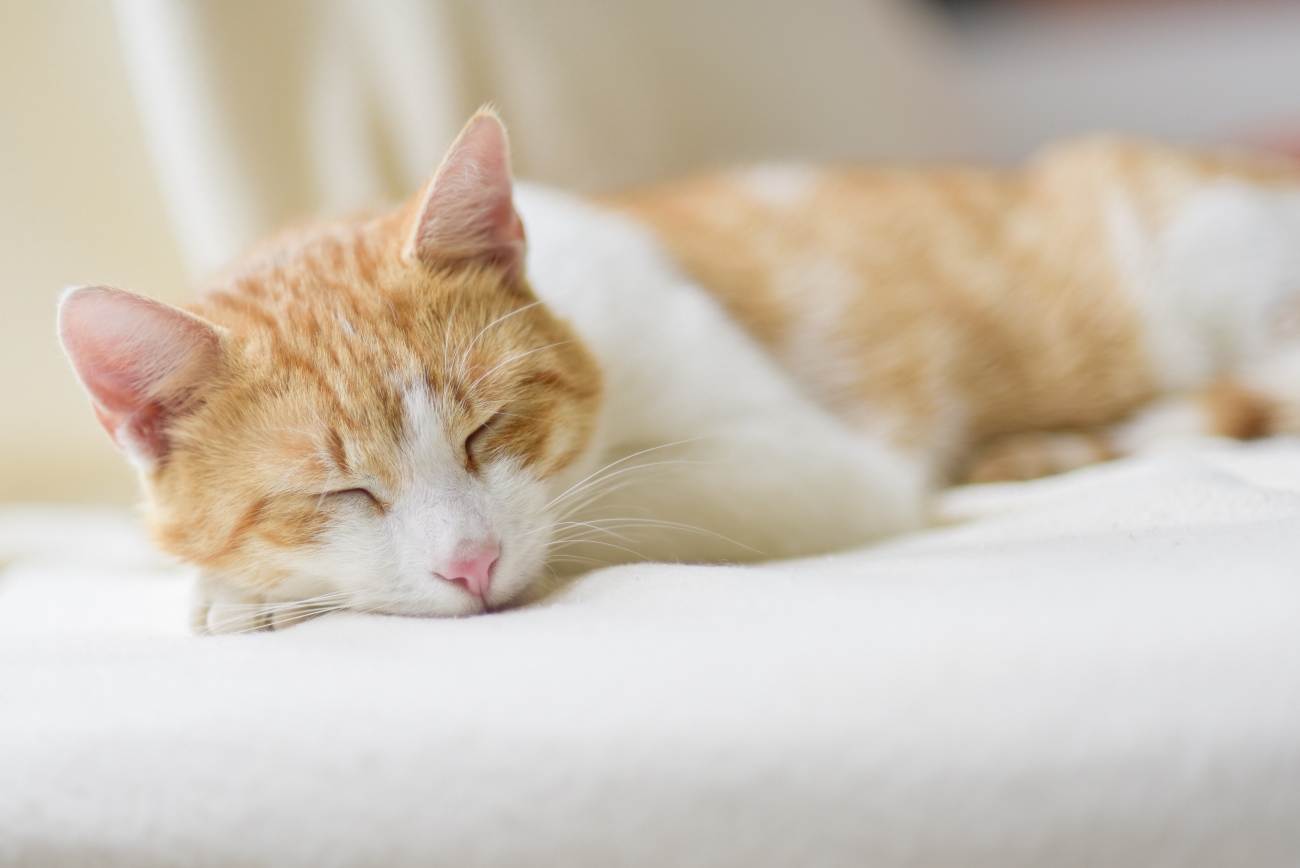
13. Ramp it up
Other additions you may want to make to the home include a ramp, to help them get up to the higher, out-of-the-way places they often enjoy.
Similarly, your cat may love the great outdoors, but now find themselves going out less. They can still keep an eye on what's going on out there, with the help of a cat perch sited in a window.
A crash mat underneath can be a good idea, too, as older cats' balance can sometimes deteriorate with age.
14. Do they still like their litter?
Another area where your older cat will appreciate some help is going to the toilet. Older cats will do best with a large litter box, so they have plenty of room to move around. The sides should be low, to allow for easy climbing in and out.
The usual litter not to your cat’s liking anymore? Try softer, finer litter material instead.
15. Cat-proof your garden
If your cat still seems able to go outdoors safely, you may want to make the garden safer for them by putting up some fencing. Not only will this deter them from straying too far, it will also ensure that other cats in the neighbourhood don't encroach on their territory, possibly causing stress and anxiety.
16. Update that microchip
We'd strongly recommend this procedure for all cats. It's particularly important for both younger cats getting their first taste of the great outdoors, and for any older cats still venturing outside. The latter have a greater risk of getting confused or lost, or having a fall or some other accident while out and about, and it will be essential for them to be reunited with you as soon as possible.
If you did this when they were young, but have since moved house, make sure the details are up to date. Microchipping for cats is due to become mandatory soon, so make sure your cat is ahead of the pack.
17. Don’t miss play time
An older cat will still enjoy playtime as much as they did when younger. Indeed, regular play and exercise will be important for their physical and mental health. You may just find that playtime needs to be gentler than before. Something calm like a feather attached to a string can provide plenty of relaxed mental stimulus.
18. Trim their claws
Senior cats need a good scratch just as much as younger animals. Scratching surfaces is a natural desire in cats. However, some elderly moggies find it harder to retract their claws. Result: they can get them caught in furniture, carpets and clothing. So keep those claws trimmed or, if you don't feel comfortable doing this yourself, ask your vet to include it in your pet's regular health checks.
19. Stick to the routine
Make sure your kitty still has a daily routine they can depend on. Cats, especially older animals, like a familiar, predictable daily pattern of events. So try to serve meals at the same time each day, and don’t move furniture around. Home should feel familiar and easily navigable to your cat, especially if their eyesight is going.
20. Do your research
Get to know the major health problems affecting older cats. These include diabetes, arthritis, kidney issues, constipation, and loss of hearing. If you can catch these problems early on, you may be able to lessen your cat's suffering and extend their life for years ahead. As ever, contact your vet or, if your pet insurance for older cats includes such a service, a 24-Hour Vet Helpline.
Our own article on common health issues in older cats gives you a useful introduction to some of the commoner complaints your moggy may face in old age.
21. Weight loss worries
Have you noticed your cat starting to look a little thinner than usual? Noticeable weight gain and weight loss can both be a cause of concern. The former can put your cat at greater risk of certain chronic diseases such as diabetes, while weight loss can be caused by conditions including hyperthyroidism and intestinal disease.
22. Know the signs of pain
Try to pick up on any signs of pain in your cat. This can be tricky, as cats are quite private animals and may often try to hide any pain, discomfort or illness from their owners. However, you may well be able to pick up on pain through other behaviours.
As the cat health experts at Battersea explain, the common signs that something's not quite right include a reduction in movement, increased irritability and aggression, and making lots of noise like crying, hissing or meowing.
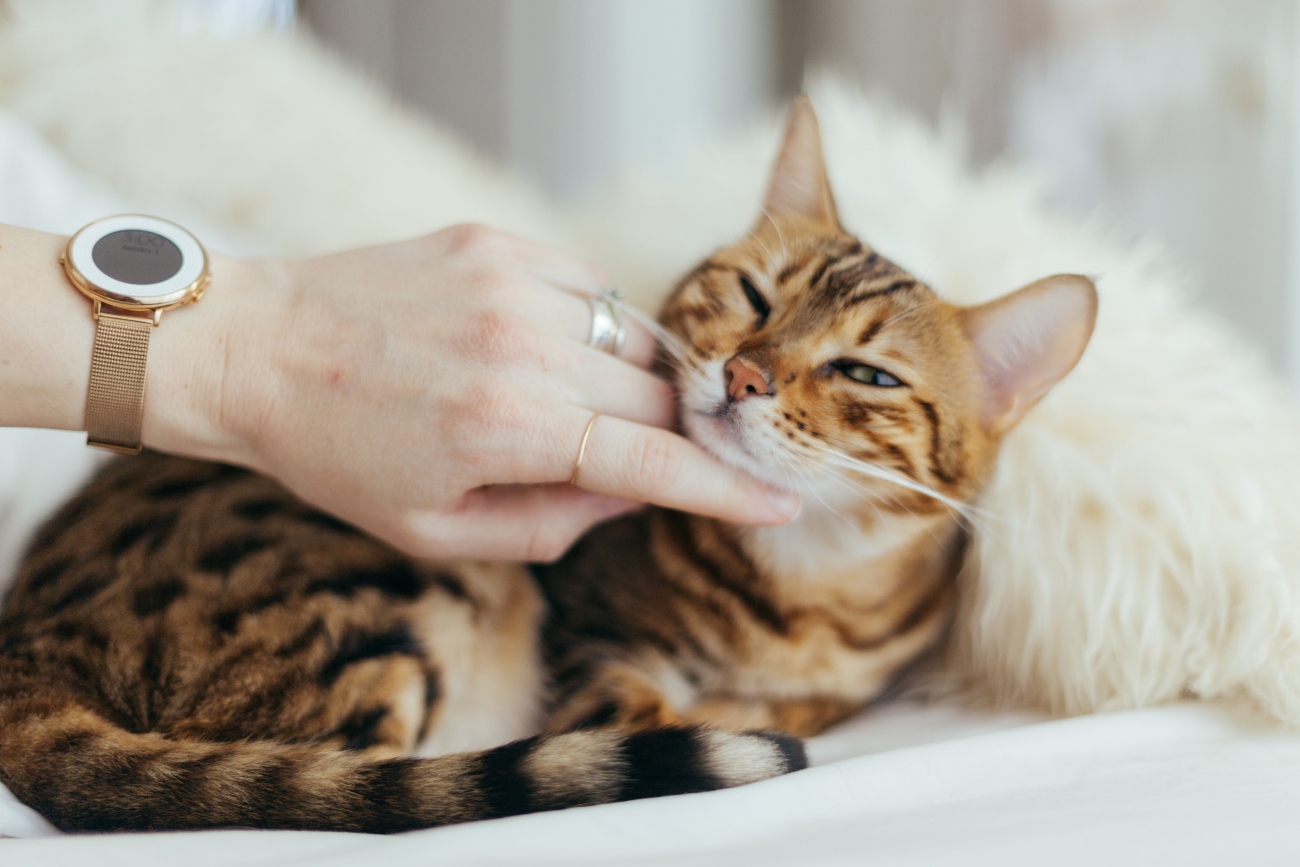
23. Monitor their poop
Your cat's toileting, and what they are producing in the litter tray, can often give clues to any underlying health conditions. For example, if their stools have suddenly become softer, harder, or a different colour, it may be a sign that something has changed internally – a digestive problem, for example. In particular, hard stools can be a sign of constipation, which can become serious if not treated early on.
24. Don’t ignore their teeth
Any problems with teeth or gums might stop your cat eating, which in turn will cause bigger issues. Gingivitis, where the gums become inflamed, can be particularly painful for older cats and can stop them eating altogether. Tartar build-up is the main problem here. You could try brushing your cat’s teeth or changing their diet to help prevent plaque taking over.
25. Always consider quality of life
Occasionally, an older cat's health difficulties may be serious enough to warrant an operation. Advances in drugs and monitoring equipment mean that animal surgery is now safer than ever. However, there may be risks involved, and you should weigh these up – alongside the expense (minus whatever your pet insurance for older cats will contribute).
Always base your decisions on whether the treatment will improve their quality, rather than the quantity, of life.
Enjoy life with your older cat
All being well, and with regular veterinary attention, your cat will live a long and happy life. What's more, senior cats can be among the most companionable animals, preferring to curl up in their owners' laps rather than haring around outside all day.
This time of your cat's life may feature some health concerns: they may also find it less easy to get around than they once did, and may struggle to eat and drink properly. However, this can also be a time of wonderful companionship. Make sure you enjoy your cat's senior years and shower them with love and affection.
Pet insurance for older cats – from Petwise
With seven levels of cover to choose from, our pet insurance for older cats can help you protect your furry friend when you need it most.
There’s no upper joining age limit, so even if your cat is getting on in years, we can still find them the protection they need.
Got a question about your pet’s health? Call the 24-Hour Vet Helpline and speak to a qualified veterinary professional to put your mind at rest.
Get a quote today.